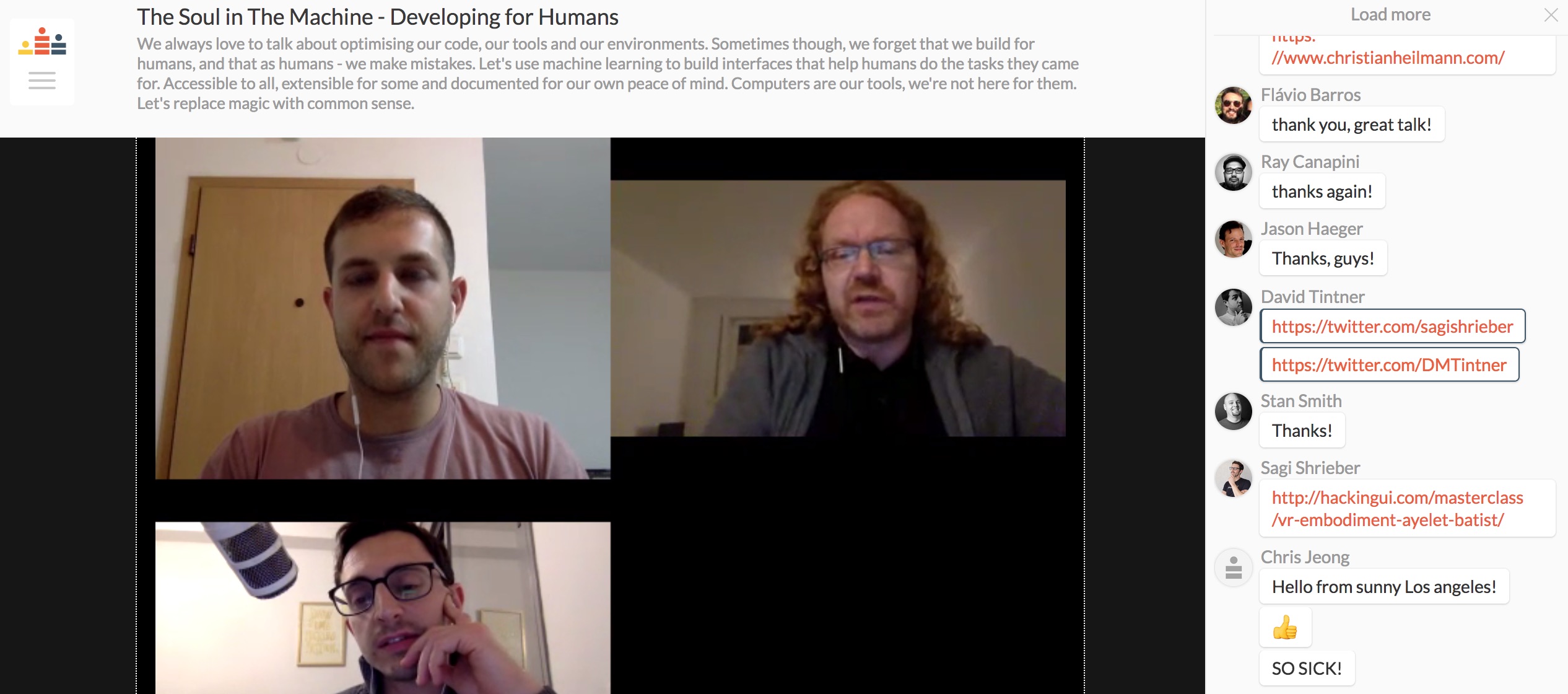Talking about building the next interfaces with Machine Learning and AI at hackingui
Tuesday, April 25th, 2017Yesterday I was proud to be an invited speaker at the HackingUI masterclass where I presented about what Machine Learning and Artificial Intelligence means for us as developers and designers. I will be giving a similar talk tomorrow in Poland in my Code Europe talk.
The Masterclass is using Crowdcast to allow for discussions between the moderators and the presenter, for the presenter to show his slides/demos and for people to chat and submit questions. You can see the whole one hour 45 minutes session by signing up to Hacking UI.
Master Class #4: The Soul in The Machine – Developing for Humans
It was exciting to give this presentation and the questions of the audience were interesting which meant that in addition to the topics covered in the talk I also managed to discuss the ethics of learning machines, how having more diverse teams can battle the issue of job loss because of automation and how AI can help combat bullying and antisocial behaviour online.
The materials I covered in the talk:
- Chinese factory raising production by 250% and lowering defects by 80% through automation
- JP Morgan automating the job of lawyers
- BBC’s Will a robot take your job? and the paper it is based on
- AI software learns to write AI software
- Microsoft DeepCoder and the paper that describes DeepCoder
- Bookmark’s AIDA to create automatic designs
- Wix ADI for automatic page creation
- Microsoft’s Inclusive Design guidelines
- Facebook’s image alternative text explained
- Cognitive Services in Microsoft Office
- Pinterest’s Lens, a Shazam for real life objects
- AiPoly and a demo video of it in action
- Automatic text in Google Allo
- Microsoft’s Video Breakdown
- Google’s DeepMind Lip reading example and the scientific paper on lip reading
- The Enhance Trope in TV
- Pixel Recursive Super Resolution – a paper explaining how the “zoom to enhance” can work.
- NVIDIA’s Super Resolution tools
- Netflix’s deep learning driving adaptive video encoding
- Google Autodraw – a tool to create icons from your doodles
- Google QuickDraw – the game that fed Autodraw’s dataset
- Cracking Google’s Recaptcha using Google’s Speech-to-Text API
- ImageNet database and Open Images alternative
- Image Captioning in Google TensorFlow
- Microsoft’s CaptionBot
- Microsoft’s Cognitive Services
- CRIS - enhancing with context
All in all there is a lot for us to be excited about and I hope I managed to make some people understand that the machine revolution is already happening and our job is it to make it benefit humankind, not work against it.
